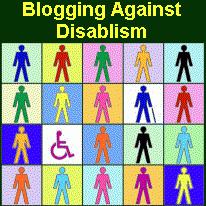First visit? Glad you're here! I hope you'll take a second to "Like" my page on Facebook and subscribe for updates so we can stay connected!

I’m guilty of making assumptions. I think we all are. As much as I stress to people the importance of not assuming a person does or does not have a disability just by how the person appears, I’ve slipped into this mindset. As much as I tell myself not to assume things that might or might not be going on in a person’s life, I’ve made this kind of judgment. It all comes down to the way I’ve been conditioned to perceive privilege.
What got me thinking about this was an article I recently read by a Princeton University student named Tal Fortgang, entitled “Checking My Privilege: Character as the Basis of Privilege.” As a white male, Fortgang is constantly told to check his privilege. And check his privilege he did, in a literal sense, by tracing his ancestry and exploring his roots. He contends that it is unfair for people to constantly assume he needs to check his privilege, or to believe that the only reason he has accomplished so much in his life is because of his privilege.
On the one hand, there’s simply no denying that society favors people with his appearance. And while I don’t exactly agree with everything Fortgang has to say, his article points to a problem inherent to the concept of privilege: It’s an overall societal advantage you have because of who society perceives you to be, rather than who you might really be. This leads to the important argument that we need to avoid making assumptions, because everything a person deals with in life is way more than skin deep. This is something I’m trying hard to keep in mind. Even the most seemingly privileged person has experienced, is currently experiencing, or will experience a difficult time, regardless of of the overarching benefits that may or may not have been afforded by said privilege.
The idea of assuming that privilege makes things easier for people connects deeply with disability. I think back to the times before I fully involved myself in studying disability culture when I’d see someone who is white, who is thin, who “seems fine,” who [insert-privileged-appearance-stereotype-here], pulling into an accessible parking spot or coming out of an accessible bathroom stall. Just the sight of that person would cause me to wrinkle my nose and determine immediately that since nothing was visible to me, there was no reason for the person to be using something meant for a disabled person. I know now that as much as I want to jump to conclusions, I must consider how it could be dis/ableist to make shallow assumptions.
I think of the times I’ve been envious of other people. I’d like to say that never happens, but I am human. For instance, when I know for a fact that someone doesn’t have a disability, I find myself envying that, as if it’s somehow an escape from all of life’s other problems. Indeed, nondisabled people are privileged because they are not disabled (at least in that they don’t experience daily dis/ableism, but in other ways that is a conversation for another post), but I can’t be quick to forget what aspects of life might still be somehow socially or culturally working against them. Perceptions of how other people are afforded, or not afforded privilege are a funny thing.
When it comes to disability, presuming anything surrounding privilege can end up being a prime example of dis/ableism. The very thing I want to work against has at times been the very thing for which I’m at fault. Perhaps this is true for all of us. And so, in honor of “Blogging Against Disablism Day 2014,” the most important thing we can all do is not just check our own privilege, but actually check ourselves on making assumptions about the people around us.
Like what you read? Subscribe for weekly updates and be sure to confirm your e-mail!

